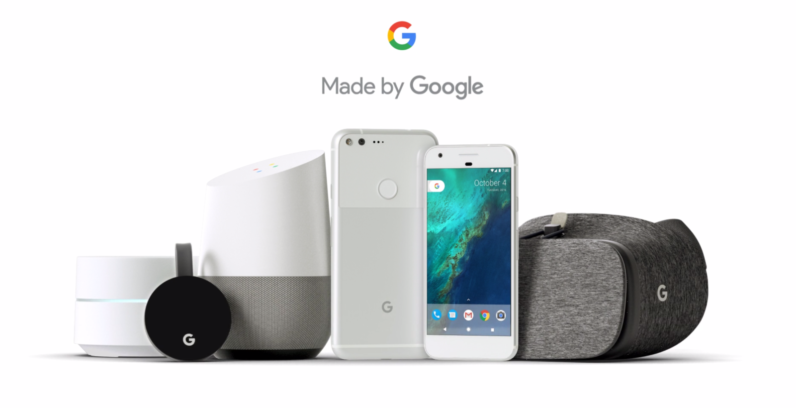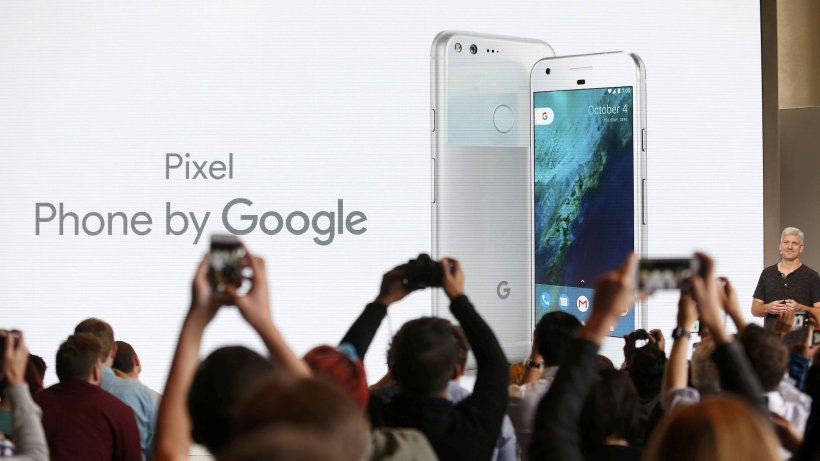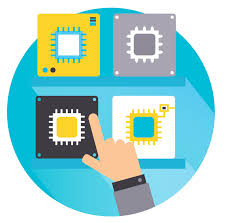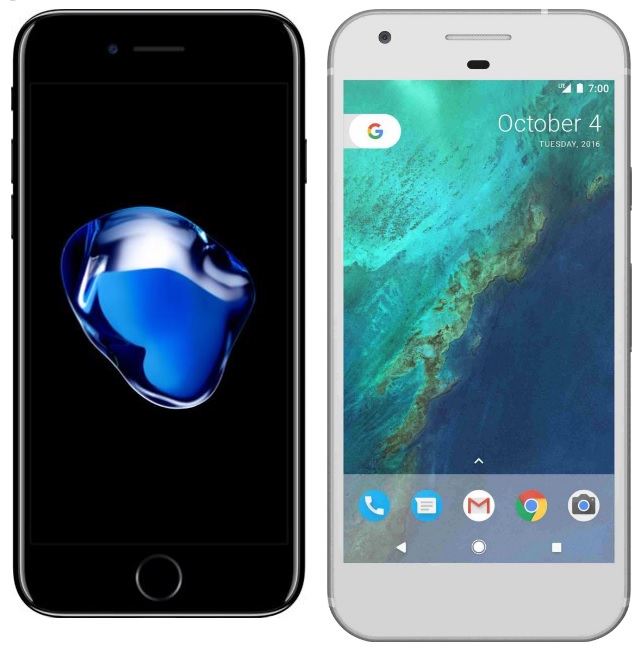Pixel and Google's new business model as a way to take rivalry with Apple to a new level ..

The key point of the Alphabet event held on October 4 was Google's step into the field of mobile hardware, indicated by the launch of its own Pixel line, only in smartphones of this series there is a virtual assistant Google Assistant. Google joined Microsoft, in a way adopting the model Apple in terms of developing hardware and software for branded products. It's unclear if this is flattering Apple or if the company should feel threatened.
Why build 'hardware'?
In discussing competitive advantages Apple, I have repeatedly touted the merits of a company overseeing hardware and software development, with only partial technical details. Readers from time to time have challenged my belief that this model has advantages, and in fact, it is not easy to find objective information to support this statement. Perhaps circumstantial evidence will be the best way to confirm my assumption, since key competitors Apple among personal computing platforms have started moving in the same direction.

At the start of the October 4 presentation, Rick Osterloh, head of Google's hardware division, also attempted to provide a rationale for the company's beginning hardware development. He asked a rhetorical question: 'Why create' iron? ' To paraphrase his argument: Osterlo is confident that the volume and complexity of information generated and processed by mobile devices has made it necessary to enter the realm of hardware right now, and the creation of both software and hardware will allow Google to maximize the benefits of its augmented reality capabilities presented in Google Assistant.
GA's example can hardly be called explicit and obvious, especially given the 'cloud nature of the assistant', which virtually allows any device to access it. In fact, GA is included in Allo, an app available on both Android and iOS. Google's decision to provide exclusive access to GA via Pixel smartphones and other products such as Google Home was apparently intended as a way to differentiate its own products from the rest of the ecosystem Android.
Also, most of GA's functionality is available in the Google mobile search application, so the effectiveness of differentiation is questionable. Google seems to offer the most painless way to get GA, coupled with possible server-side priority access. Given Google's decision to become a device maker, it's clear that Google is obviously playing on its AI potential. In his opening remarks at the presentation, Google CEO Sundar Pichai decided to announce the transition of the technological world from the era of mobile devices to the era of AI. This statement can be questioned, but it expresses the vector of the work of the Google team. Pichai also said that smartphones have become the most important personal computing device for many people.
Hybrid model
Both Microsoft and Google are hesitant for many reasons to fully transition to the technical and business model Apple. This could play a role in discussions about the success of further competition between Google and Apple From a technical point of view, Google's claims for authentic design seem suspicious. Pixel for Google created HTC, even if there is no obvious branding. You need to understand how closely you worked with HTC to create Pixel. The whole truth will inevitably break out, we will shed light on the problem in one of the future detailed reviews of the novelty. Google and HTC had no other choice, and therefore the far from new Qualcomm Snapdragon 821 is installed on the device. This step raises questions about the real nature of the interaction between hardware and software.

Control Apple over processor design appears to optimize performance and improve autonomy. Apple this year once again demonstrated a solid increase in processor speed – 40% compared to the A9 processor in the iPhone 6S, while maintaining similar battery life indicators. This, probably, is one of the areas of application of the well-developed bundle of software and hardware. It may be that at this stage, Google is not prioritizing becoming a hardware manufacturer, preferring to prioritize such a welcome shift in the business model.
Everyone knows that Apple 'skim the cream' the most in the industry. The high initial price of iOS – devices provides the lion's share of this profit, while the constantly ongoing process of monetization of services is increasingly increasing its share in the revenue from iOS. Google obviously wants to get involved in hardware sales to boost revenue streams as well as monetization. The problem with this strategy is quite similar to the strategy that Microsoft has chosen for its devices based on Windows. Google is releasing products that will compete not only with Apple, but also with its own Android – ecosystem.
So Google, like Microsoft, uses a kind of hybrid model that takes the best from the premium approach Apple and from the traditional strategy that has proven itself so well in Google devices. For Microsoft, the problem lies in the fact that the company does not have the ability to oppose something to OEM products for our market. Google may have a good opportunity to make this hybrid model work with exclusive access to GA, but even that may not be enough.
Conclusion
The Nexus strategy has always been to bring the hybrid model to life, but the line has failed to weaken Samsung's dominance in the premium segment of the market Android. Typically, Google did not release sales figures for Nexus devices and most believed they were small compared to total sales Android. The Pixel series will probably do better in this regard, but again, the devices in this line will primarily compete with the ecosystem Android. In this sense, it is all like pulling a blanket.

A tactical mistake for Google could be to deprive its partners in Android of access to GA by refusing to include its assistant in version Android 7.1. GA is definitely superior to Siri. If Google decided to add this functionality in the newest version Android, then I would allow a decrease in market share Apple and an increase in market share Android. During the presentation, there was a hint of deprivation iPhone of 7 of the market share. This can be overwhelming. The 128GB Pixel is no different in cost than the iPhone 7 with the same amount of memory. Even with GA in stock, users will find it difficult to gauge the perceived benefits of the Pixel.
Pixel in its current form will not take off a large share of iPhone 7, but the initiative is 'sighting' in nature and therefore the big picture can be missed. The project represents a step towards hardware that will continue for many generations to come, and an unprecedented shift towards mainstream AI. Pixel represents a sure step for Google to continue to compete more effectively with Apple and better monetize development Android. Regardless of the number of sales of the first generation Pixel, you can count a victory. There are also losers, this is Samsung, and to a lesser but still important degree – Microsoft, which will be forever cut off from this important personal device. As for Apple, Pixel is a clear competitor to be reckoned with, at least in terms of GA.
Original material by Mark Hibben
Omitting the calculations for investors, it is worth noting that the author is full of enthusiasm for the new Pixel smartphones and he can be understood: they are accepted quite warmly, however, the design was considered by many to be very boring and discreet. AI is gaining momentum, of course, but in my opinion, until technology penetration has reached the point necessary to influence sales promotion, let alone gain market share.
I see the hybrid model as an unstable system at times, hopefully Google will be able to strike the right balance. At least now Google has something to argue with Apple and other major manufacturers. Do you find the Pixel initiative a success, what would you change in the next generation of phones?
